USJ and De La Salle University-Dasmarinas Strengthen Ties through Sustainability Initiatives
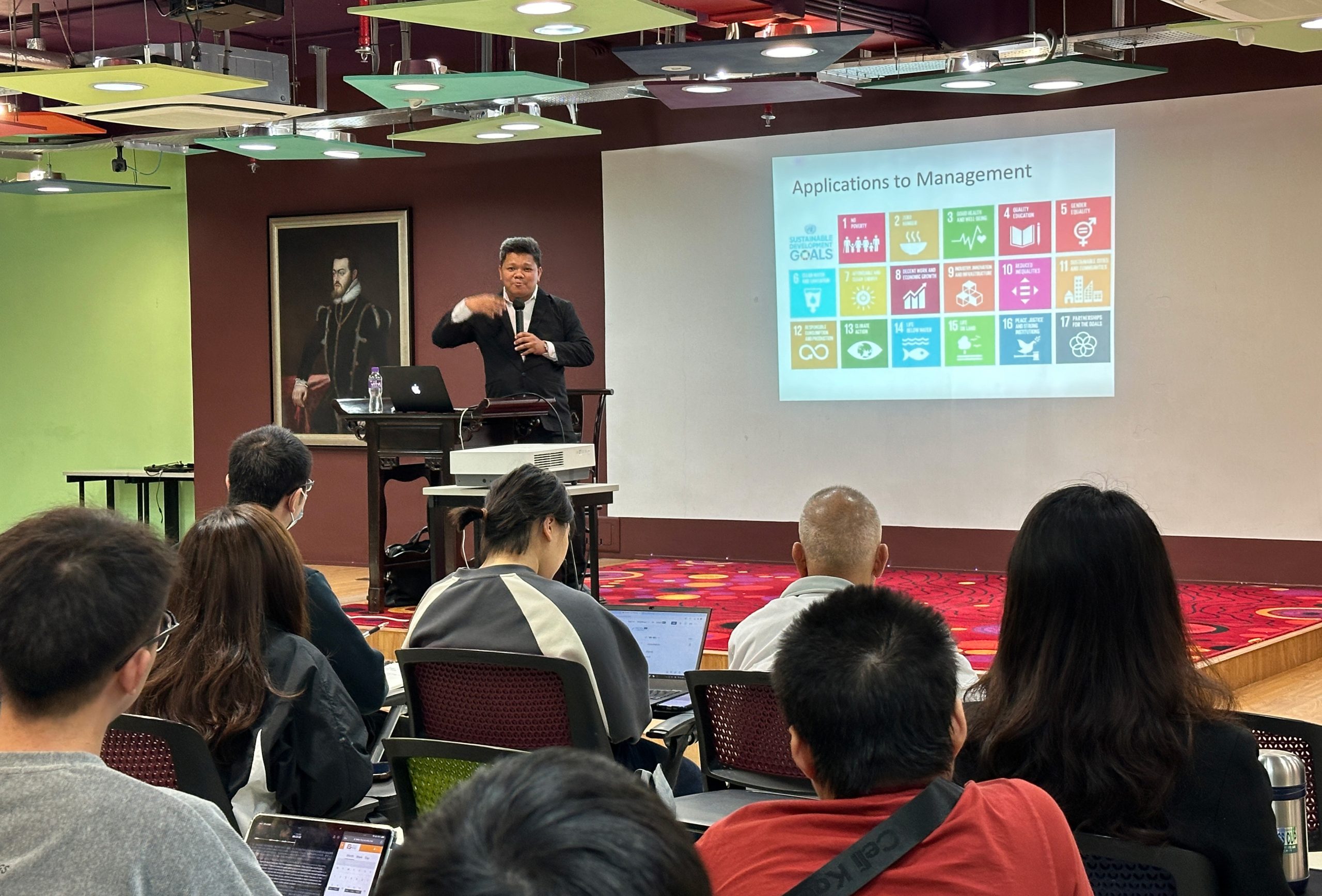
USJ and De La Salle University-Dasmarinas Strengthen Ties through Sustainability Initiatives
07
Feb
07/02/2024
The University of Saint Joseph and De La Salle University-Dasmariñas in the Philippines teamed up to take sustainability education to the next level with a series of workshops, lectures, and community engagement with Prof. Marlon Pareja.
The University of Saint Joseph (USJ) Macao has recently marked a significant milestone in its collaboration with De La Salle University-Dasmariñas (DLSU-D) in the Philippines as it welcomed Prof. Marlon Pareja for a two-week engagement from January 13 to 28. The visit comprised a series of meetings, lectures, and workshops centered around sustainability-related topics, showcasing the commitment of both institutions to fostering educational and research exchanges.
The collaboration between USJ Macao and De La Salle University-Dasmariñas was formalized with the signing of a Memorandum of Understanding (MOU) during the Association of Southeast and East Asian Catholic Colleges and Universities (ASEACCU) annual conference in Baguio – Philippines, on August 21 to 25, 2023.
Prof. Marlon’s visit is a proactive step towards realizing the objectives outlined in the MOU, with a focus on enhancing educational and research experiences for both faculties and students.
Key Activities during Prof. Marlon’s Visit:
Meeting with USJ Executive Council
Prof. Marlon’s courtesy meeting with USJ Executive Council, including Prof. Keith Morrison, Vice-Rector for Research, Dr. Teresa Loong, Vice-Rector for Student Affairs, and Dr. Alejandro Salcedo, USJ Administrator, paved the way for a fruitful discussion. They were also joined by Prof. Karen Tagulao, Chair of the USJ Green Committee. The exchange of ideas aimed to strengthen collaboration and align shared goals, particularly regarding the SDGs.
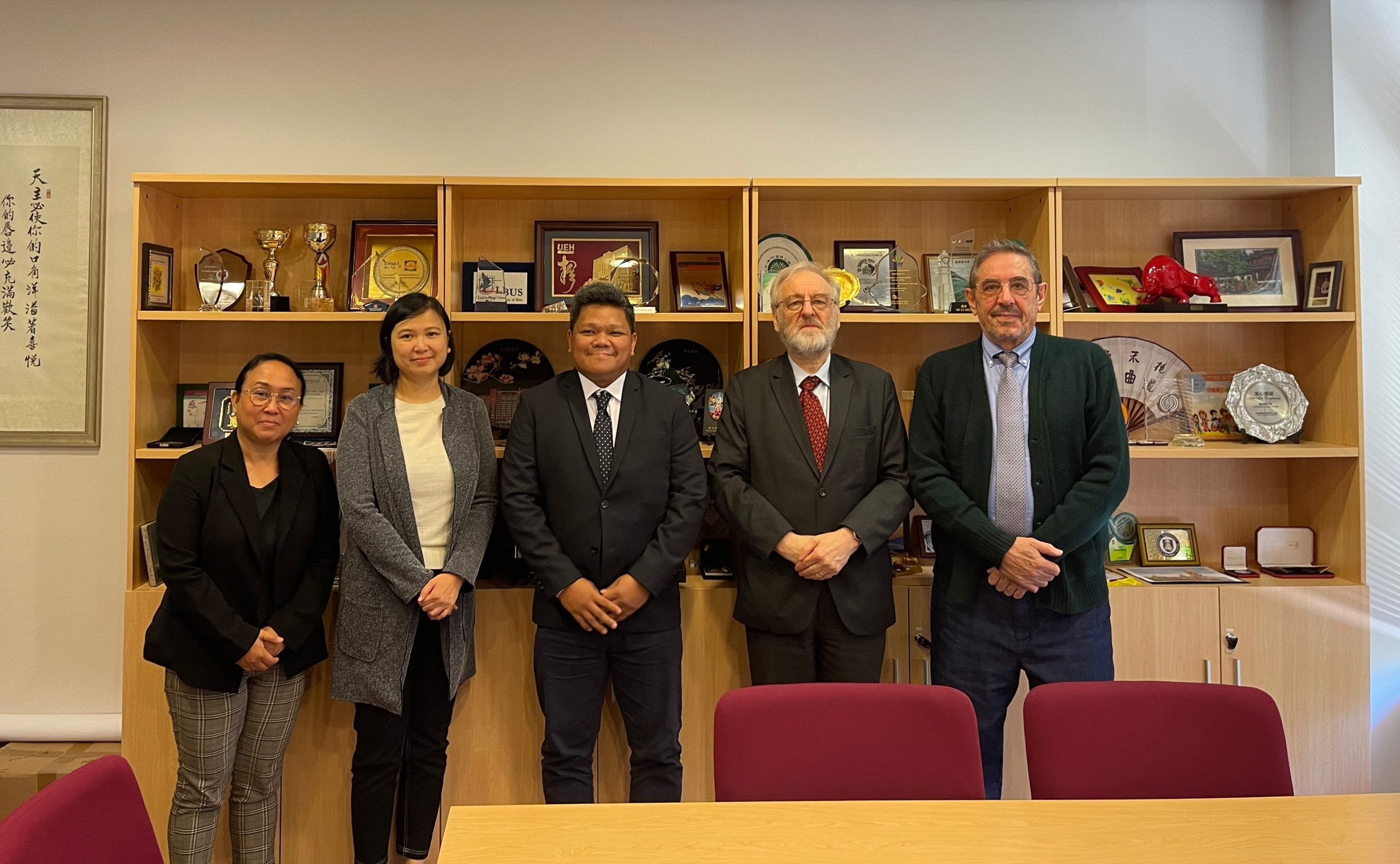
Workshop with USJ Green Committee
Prof. Marlon engaged in a workshop with the USJ Green Committee, exploring the theme of “Pedagogy of Place: Thinking in Systems Approach in Solid Waste Management.” The workshop explored innovative approaches to sustainable waste management, emphasizing the interconnectedness of systems within the university, and highlighting the significance of policies and active participation from staff, students, and administration.
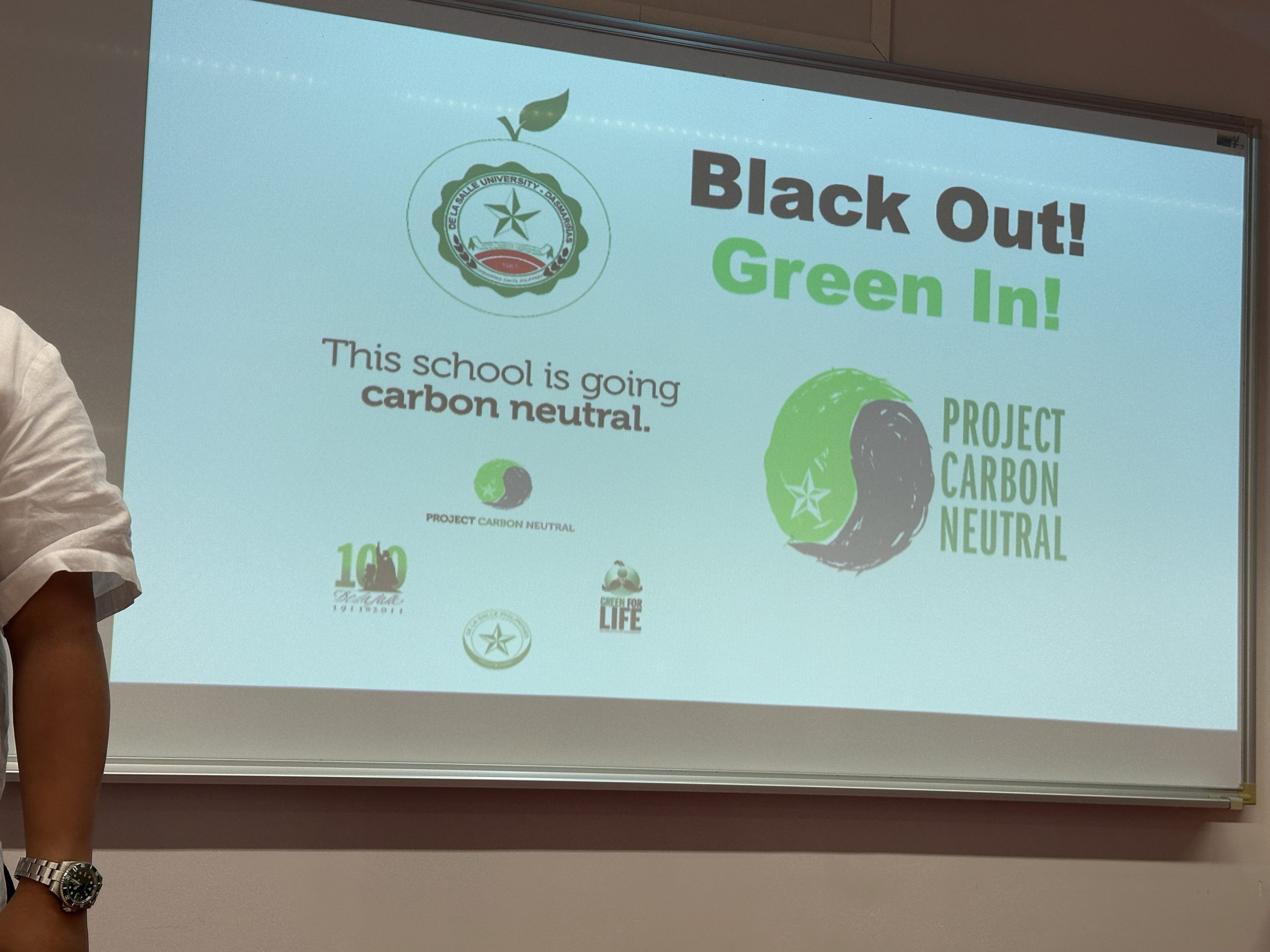
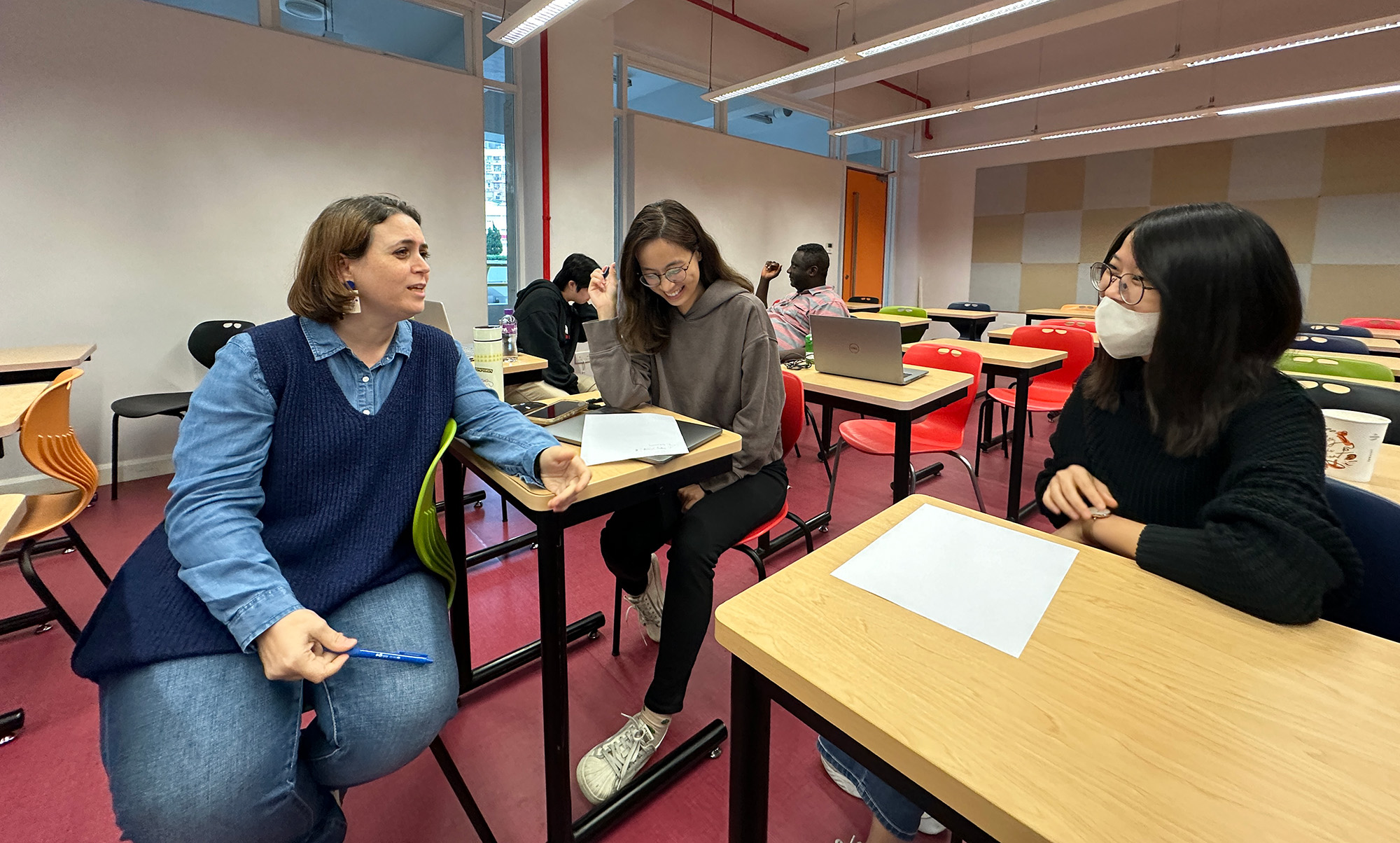
Public Lectures
- An Introduction to Water Footprints: Changing Paradigms on Water Management Using Food Consumption Patterns
- Experiences from the Campus Grounds: Developing Sustainable Schools
These enlightening talks explored into water usage patterns, water footprints, and the journey of a university toward sustainability, emphasizing a holistic approach to education and campus operations. Prof. Marlon provided valuable insights into the intricate relationship between consumption patterns and environmental impact, fostering a deeper understanding among the audience.

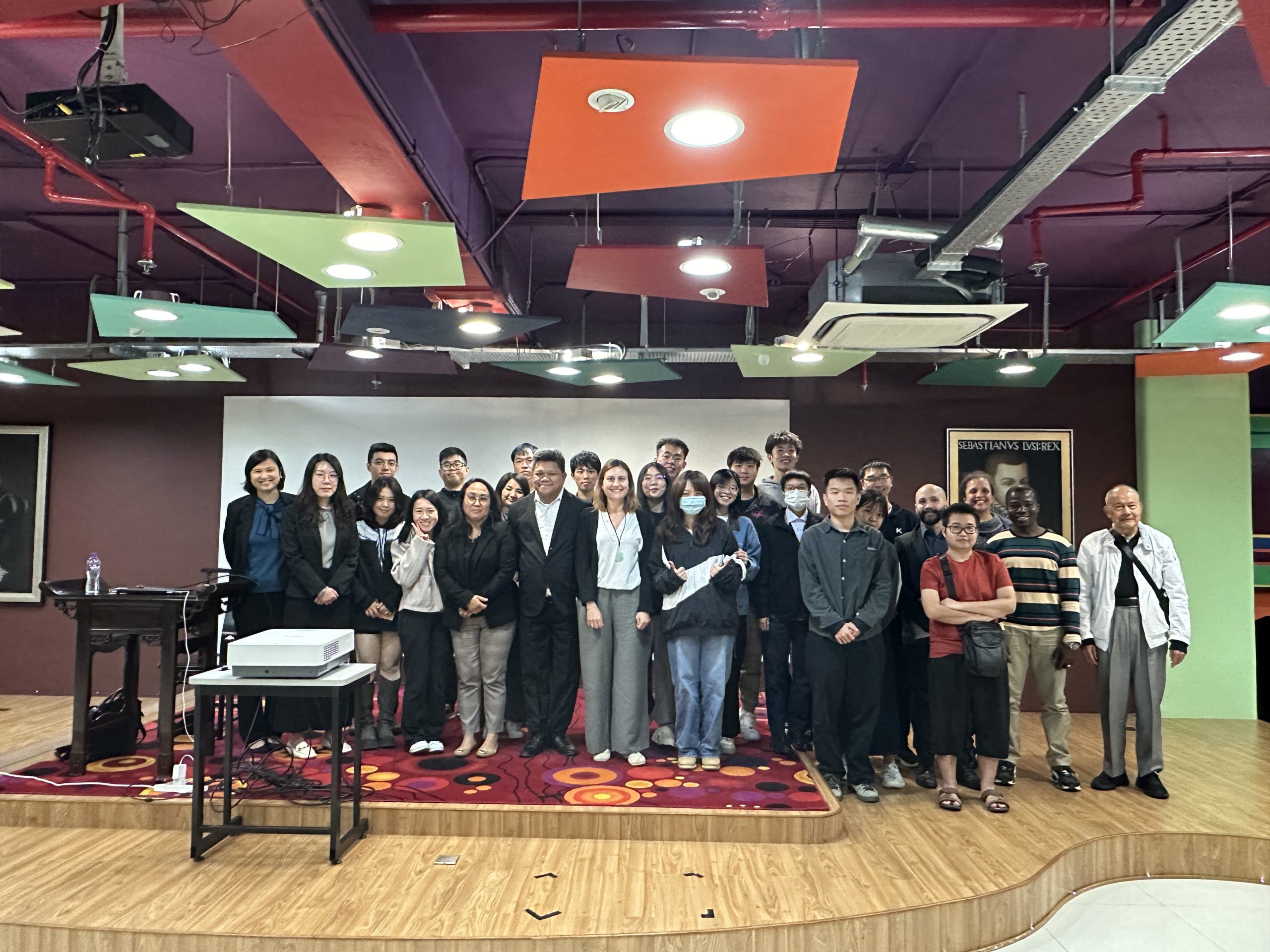
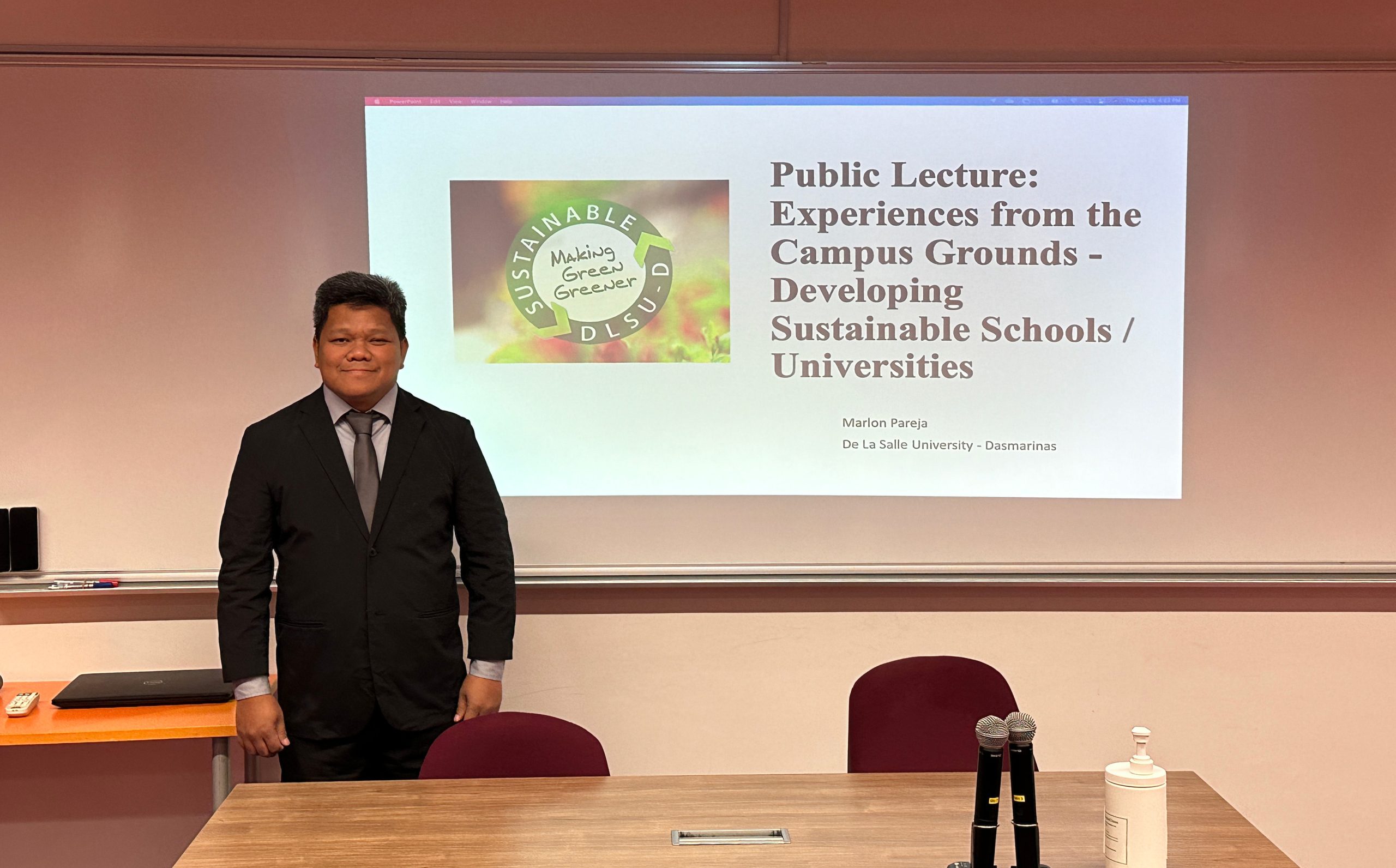
Workshop with Students and Community
Prof. Marlon conducted a workshop on “The campus as an in situ Biodiversity classroom: The need to contextualize Biodiversity Education in the Local Curriculum.” This engaging session explored innovative approaches to biodiversity education, using the campus as a living learning environment.
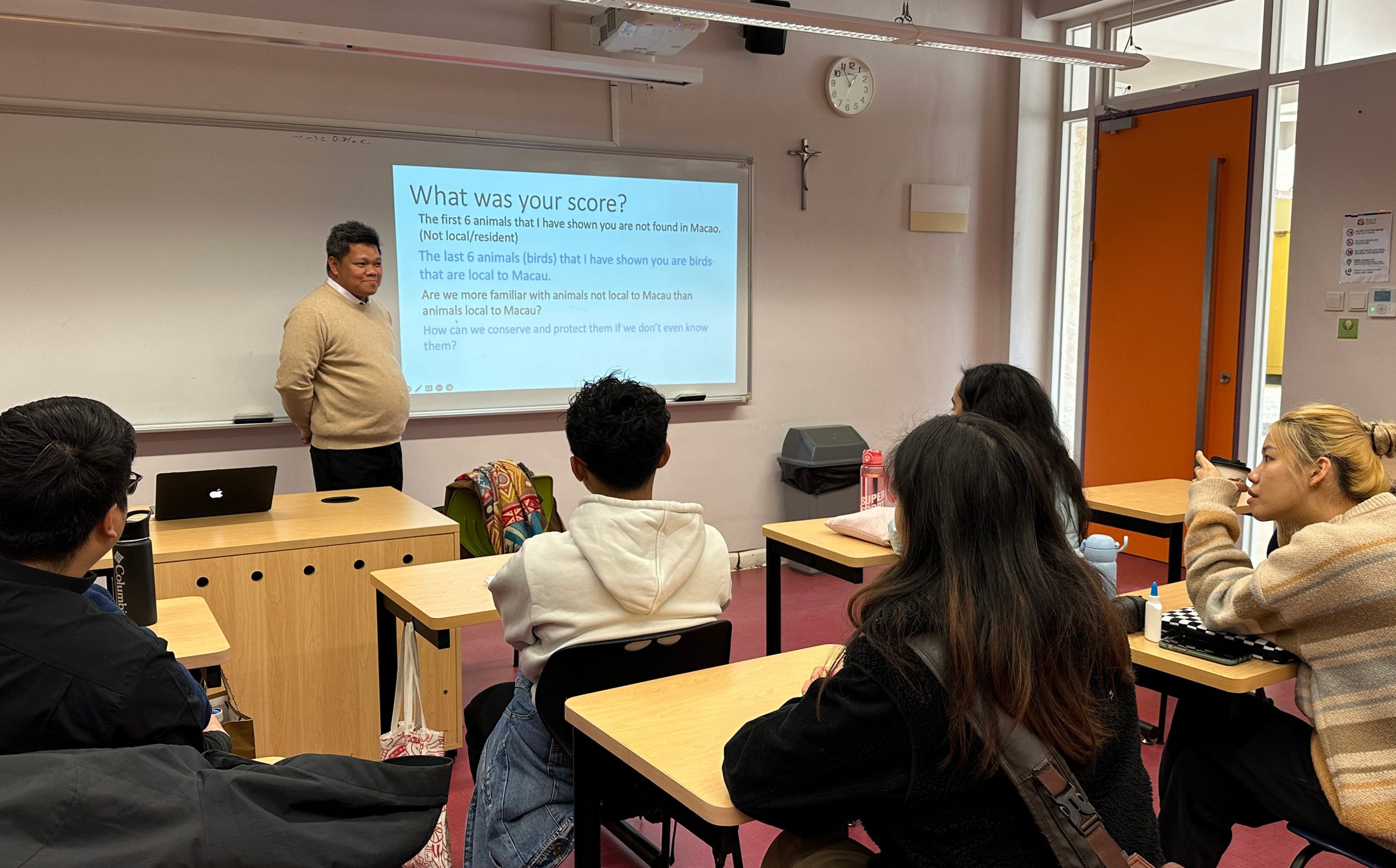
Coastal Site Visit for Collaboration with Colegio Mateus Ricci
A collaboration meeting at a coastal site with Colegio Mateus Ricci, a local school, aimed to plan an outreach program about biodiversity and other environment related projects, further strengthening community engagement and environmental initiatives.
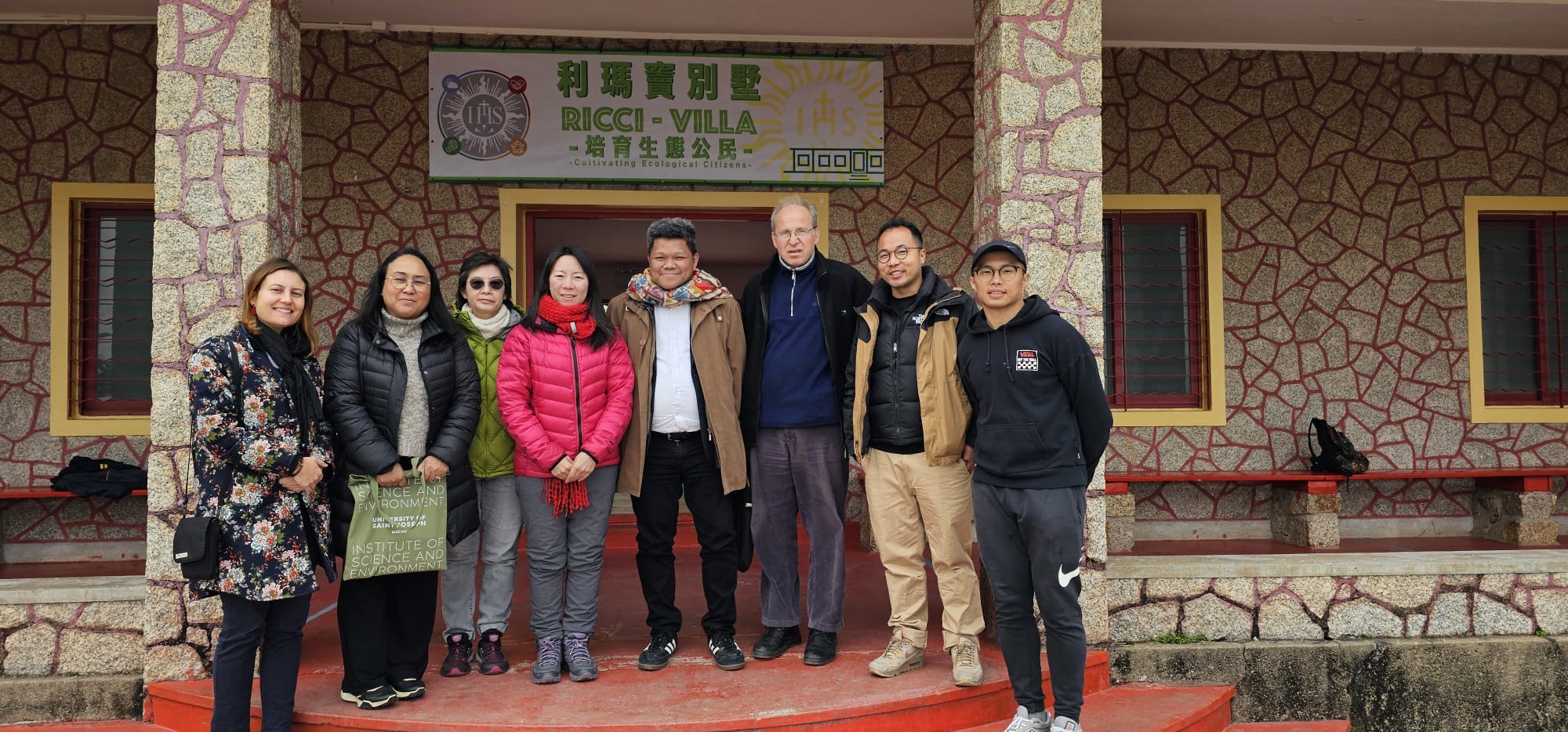
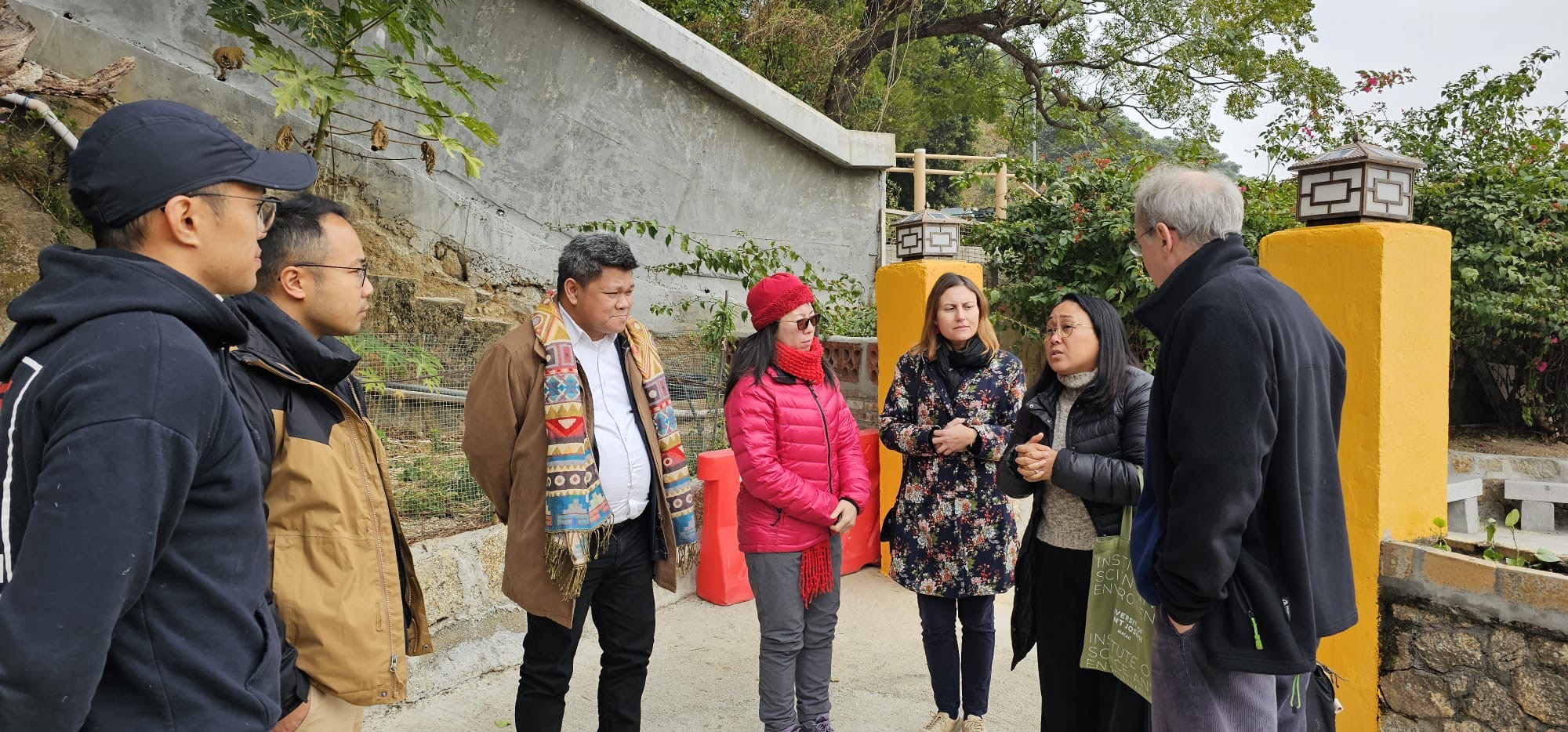
Talk at Local School (Colegio Mateus Ricci)
Prof. Marlon delivered a talk to over 100 school students, titled “My Environmental Impact: From Biodiversity to Sustainable Consumption”. The talk underscored the significance of biodiversity and its relationship with sustainable consumption practices, leaving a lasting impact on the young minds.
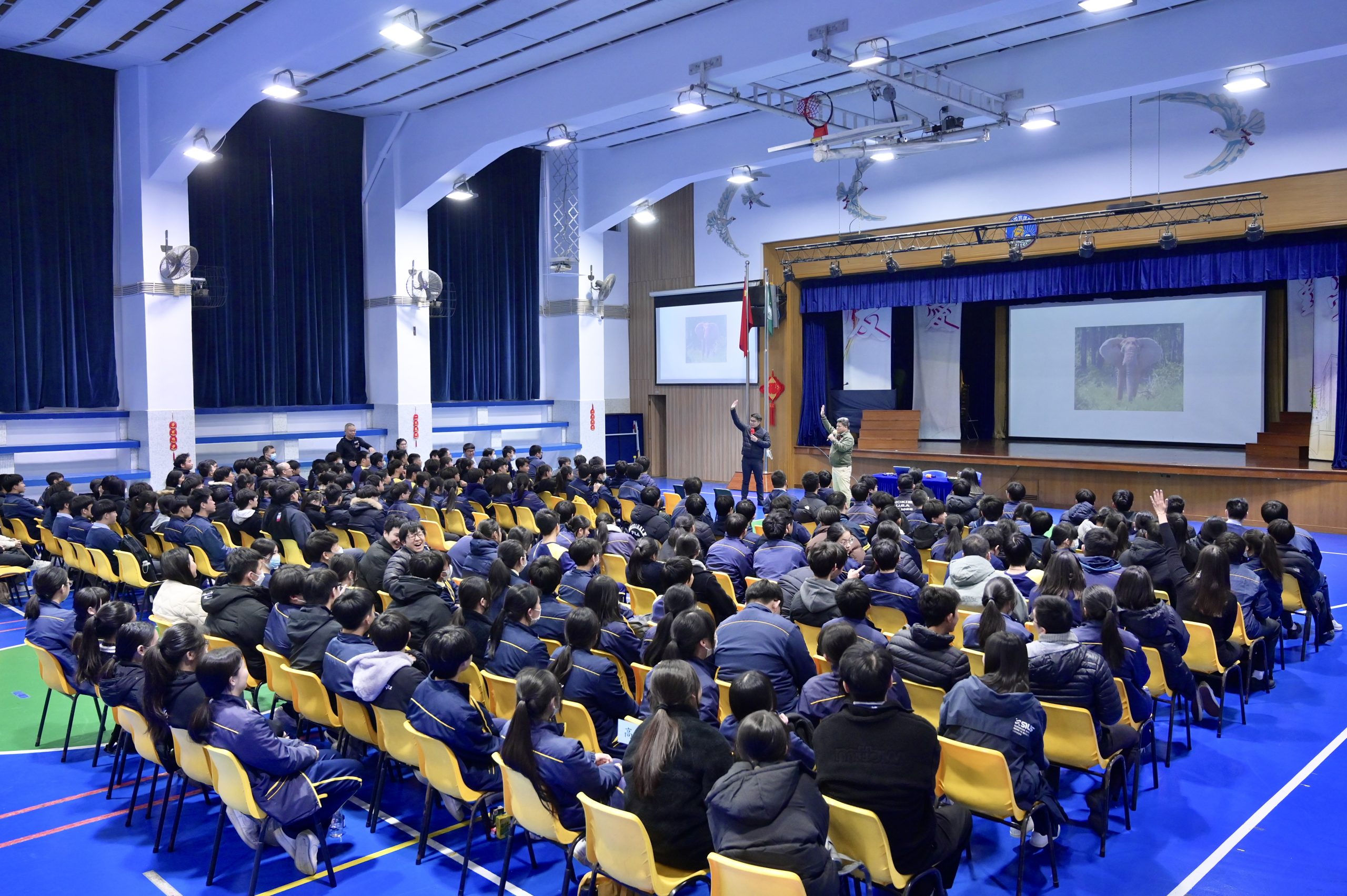
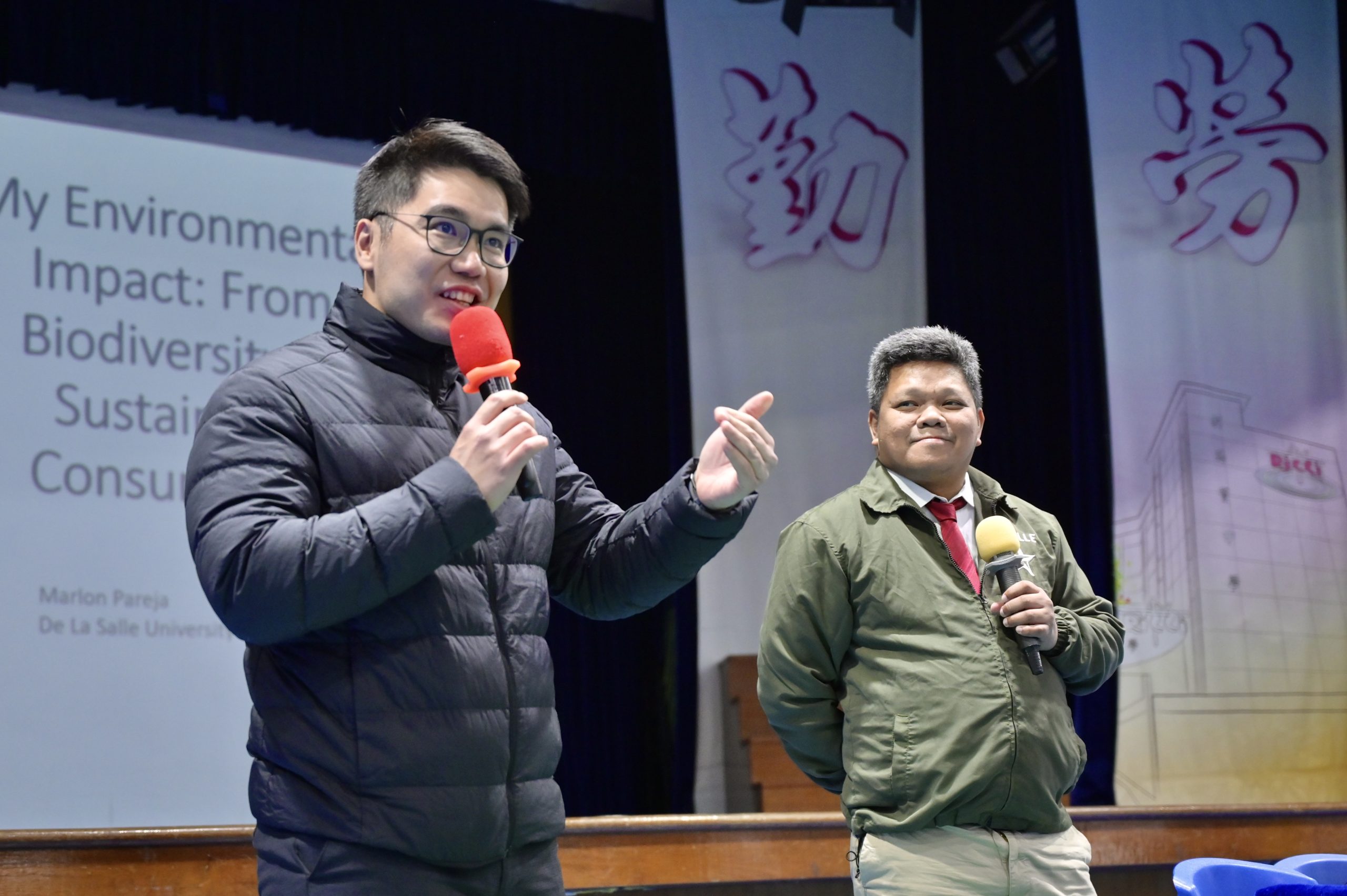
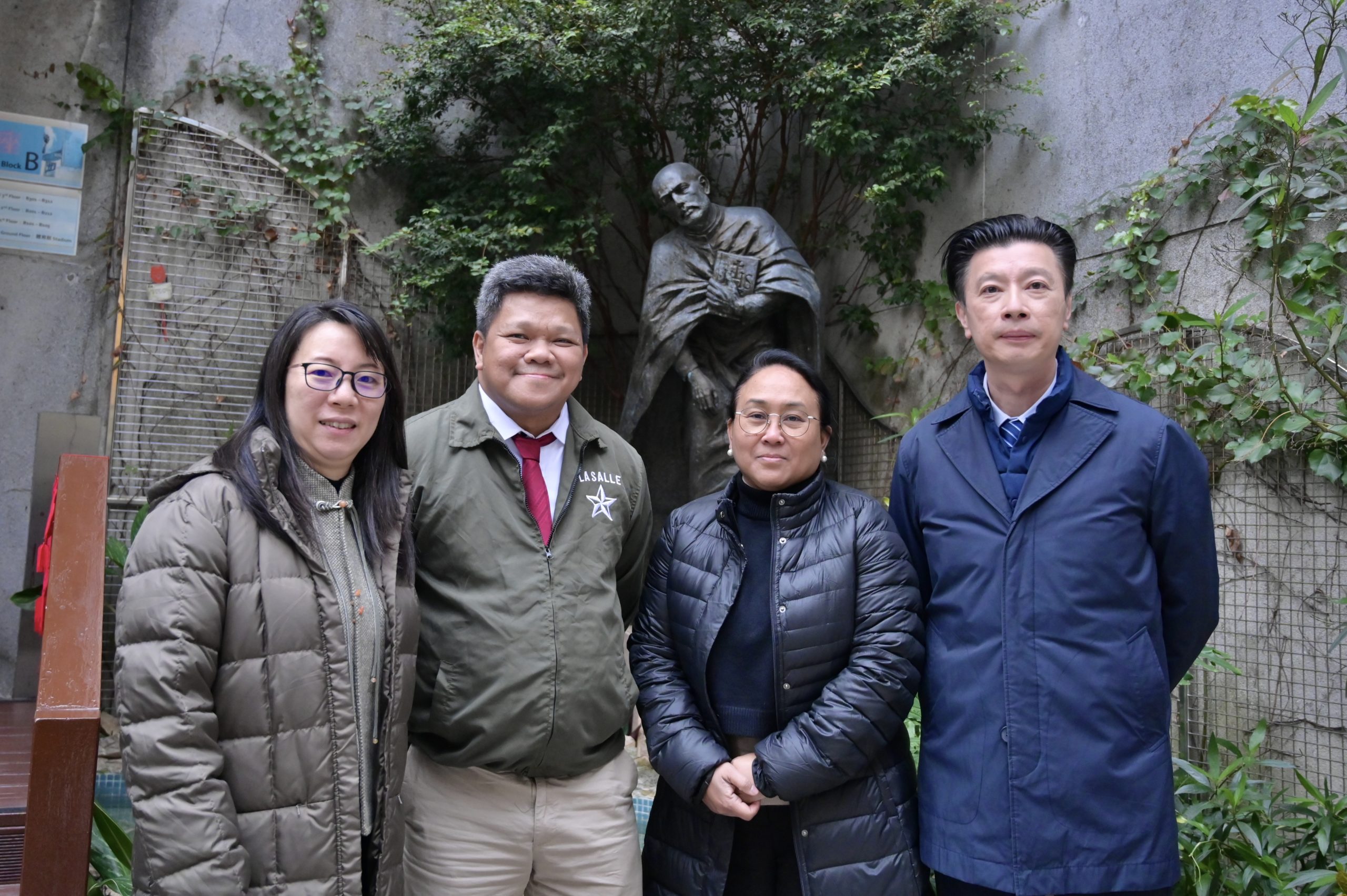
These activities, facilitated and coordinated by Dr. Teresa Loong and Prof. Karen Tagulao, not only strengthened the partnership between the two institutions but also left a significant impact on the USJ community, inspiring a renewed commitment to sustainability and environmental stewardship.









